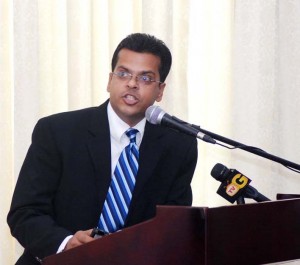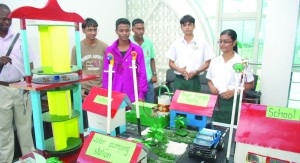
Guyana like other Caribbean countries remains highly dependent on the use of fossil fuel and continues to face a towering fuel importation bill, Guyana Energy Agency (GEA) Chief Executive Officer Mahendra Sharma said.
Speaking at a recent seminar for stakeholders last Friday at the Guyana International Conference Centre, Greater Georgetown, Sharma said Guyana is gradually moving away from its dependence on fossil fuels, noting that with the establishment of the Amaila Falls Hydro Project, more progress will be made in this regard.
“The Amaila Falls Hydro Project is 165 megawatts – our peak demand in September actually was 107 megawatts. With 165 megawatts, we would obviously have more than what we currently need,” Sharma stated.
While the project will help in the creation of more energy resources, the GEA head said that this will not be sufficient enough for the continuous demand and growing population in the coming years. Therefore, discussions with stakeholders have already commenced and will look at new ways of developing renewable energy for citizens. This is being done since demand is expected to increase.
Sharma said depending on the economic development anticipated within a few years of the commercial operation of the hydro, the GEA will need to look for other sources of energy and stakeholders are already discussing those options now.




